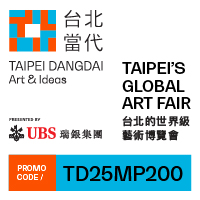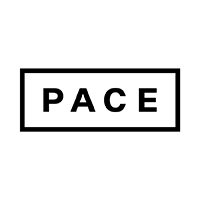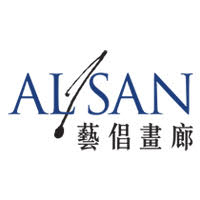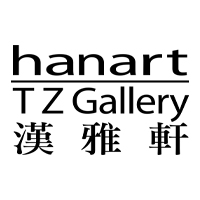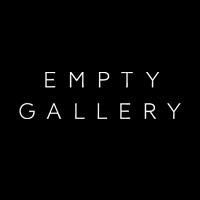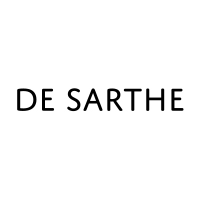China Returns Passport To Artist-Activist Ai Weiwei
On July 22, Ai Weiwei was returned his passport from Chinese authorities, after they had confiscated it from him four years ago.
Anselm Franke to Curate the Shanghai Biennale
Berlin-based Anselm Franke has been appointed chief curator of the tenth edition of the Shanghai Biennale. Franke, who currently works as the Head of Visual Art and Film at the Haus der Kulturen der Welt in Berlin, says the Biennale will explore notions of subjectivity and creative process as it exists in contrast to “the logic of modernization, its rationalizations and standardizations” in an age of technological mediation.
Chinese Modernist Painter Chu Teh-Chun dies at 93
On March 26, the renowned abstract painter Chu Teh-Chun died in Paris at the age of 93. Following closely after the passing of his friend and fellow proponent of the Chinese Modernist movement Zao Wou-ki (1920–2013), last year, as well as Wu Guangzhong in 2010, Chu’s death marks the end of generation of Chinese painters living in Europe whose works continue to offer salient cross-cultural perspectives.
Canton Express: Chinese Art Collector Donates Complete Works of Pioneer Exhibition to M+
Prominent Chinese art collector, Guan Yi has donated 37 works to M+, Hong Kong’s much-anticipated museum for visual culture. Dating from 1980 onwards, the collection, which comprises of mainly New Wave, conceptual and large scale installations, traces key moments in the history of contemporary Chinese art.
Michael Sullivan, Pioneer Chinese Art Scholar, Dies at 96
Michael Sullivan, a pioneering British art historian in the field of Chinese traditional and contemporary art, died in his home in Oxford, England, on September 28, at the age of 96. He had just completed a three-week trip to China.
Breaking Barriers: Kwan Sheung Chi Wins Hugo Boss Award
On November 1, the newly established Hugo Boss Asia Art Award went to Hong Kong artist Kwan Sheung Chi. In a ceremony which took place at Shanghai’s Rockbund Art Museum (RAM), the 33-year-old artist was recognized for works containing “against-the-grain criticism of the system” and which open up the possibility for “personal utopias,” earning a USD 48,000 prize.
Winner of Hugo Boss Asia Art Award to Celebrate With Work’s Destruction
Last night, the newly established Hugo Boss Asia Art Award went to Hong Kong artist Kwan Sheung Chi. In a ceremony which took place at Shanghai’s Rockbund Art Museum (RAM), the 33-year-old Kwan was recognized for his outstanding contribution to the field of contemporary art in Asia. Works that contain “against-the-grain criticism of the system” and open up the possibility for “personal utopias,” have earned the artist a USD 48,000 prize.
Public Funding Cuts Jeopardize Hong Kong's Nonprofits
Last month, two of Hong Kong’s nonprofit organizations were given notice that they would no longer be receiving government funding from the Hong Kong Arts Development Council (HKADC), the statutory body supporting arts development in the city. For Para Site, a 17-year-old art space in Sheung Wan, and Woofer Ten, which operates out of Shanghai Street Artspace in Yau Ma Tei—both of whom have enjoyed productive years, respectively—this announcement came as a surprise, indicating both questionable motives and lack of foresight on government’s behalf.
Hou Hanru appointed new artistic director of Rome's MAXXI
On July 31, Rome’s National Museum of 21st Century Arts (MAXXI) announced independent curator and critic Hou Hanru as its artistic director. Assuming this role in September, Hou will be responsible for planning MAXXI’s cultural programs.
West Bund 2013 Previews in Hong Kong
Last month, 100 days from its official opening, the curatorial team of West Bund 2013: A Biennial of Architecture and Contemporary Art—an ambitious program that seeks to combine experimental architecture and art—held a press conference in Hong Kong revealing its latest plans.
Places
ToggleOlder
Toggle- Jan 2020
- Feb 2020
- Mar 2020
- Apr 2020
- May 2020
- Jun 2020
- Jul 2020
- Aug 2020
- Sep 2020
- Oct 2020
- Nov 2020
- Dec 2020
- Jan 2019
- Feb 2019
- Mar 2019
- Apr 2019
- May 2019
- Jun 2019
- Jul 2019
- Aug 2019
- Sep 2019
- Oct 2019
- Nov 2019
- Dec 2019
- Jan 2018
- Feb 2018
- Mar 2018
- Apr 2018
- May 2018
- Jun 2018
- Jul 2018
- Aug 2018
- Sep 2018
- Oct 2018
- Nov 2018
- Dec 2018
- Jan 2017
- Feb 2017
- Mar 2017
- Apr 2017
- May 2017
- Jun 2017
- Jul 2017
- Aug 2017
- Sep 2017
- Oct 2017
- Nov 2017
- Dec 2017
- Jan 2016
- Feb 2016
- Mar 2016
- Apr 2016
- May 2016
- Jun 2016
- Jul 2016
- Aug 2016
- Sep 2016
- Oct 2016
- Nov 2016
- Dec 2016
- Jan 2015
- Feb 2015
- Mar 2015
- Apr 2015
- May 2015
- Jun 2015
- Jul 2015
- Aug 2015
- Sep 2015
- Oct 2015
- Nov 2015
- Dec 2015
- Jan 2014
- Feb 2014
- Mar 2014
- Apr 2014
- May 2014
- Jun 2014
- Jul 2014
- Aug 2014
- Sep 2014
- Oct 2014
- Nov 2014
- Jan 2013
- Feb 2013
- Mar 2013
- Apr 2013
- May 2013
- Jun 2013
- Jul 2013
- Aug 2013
- Sep 2013
- Oct 2013
- Nov 2013
- Dec 2013
- Jan 2012
- Feb 2012
- Mar 2012
- Apr 2012
- May 2012
- Jun 2012
- Jul 2012
- Aug 2012
- Sep 2012
- Oct 2012
- Nov 2012
- Dec 2012
- Jan 2011
- Feb 2011
- Mar 2011
- Apr 2011
- May 2011
- Jun 2011
- Jul 2011
- Aug 2011
- Sep 2011
- Oct 2011
- Nov 2011
- Dec 2011
- Mar 2010
- May 2010
- Jul 2010
- Sep 2010
- Nov 2010
- Jul 2009
- Sep 2009
- Nov 2009
- May 2007
